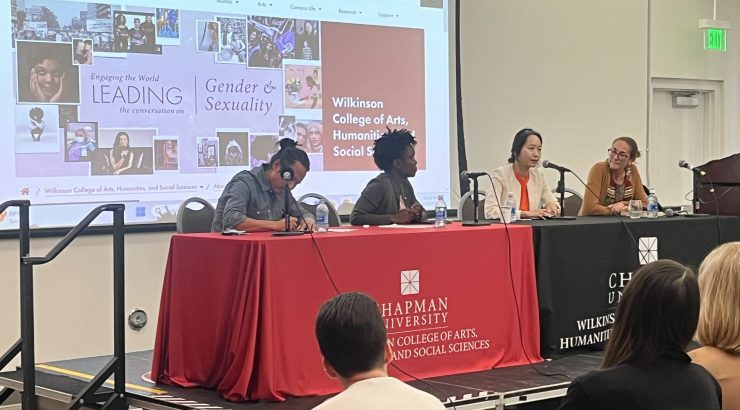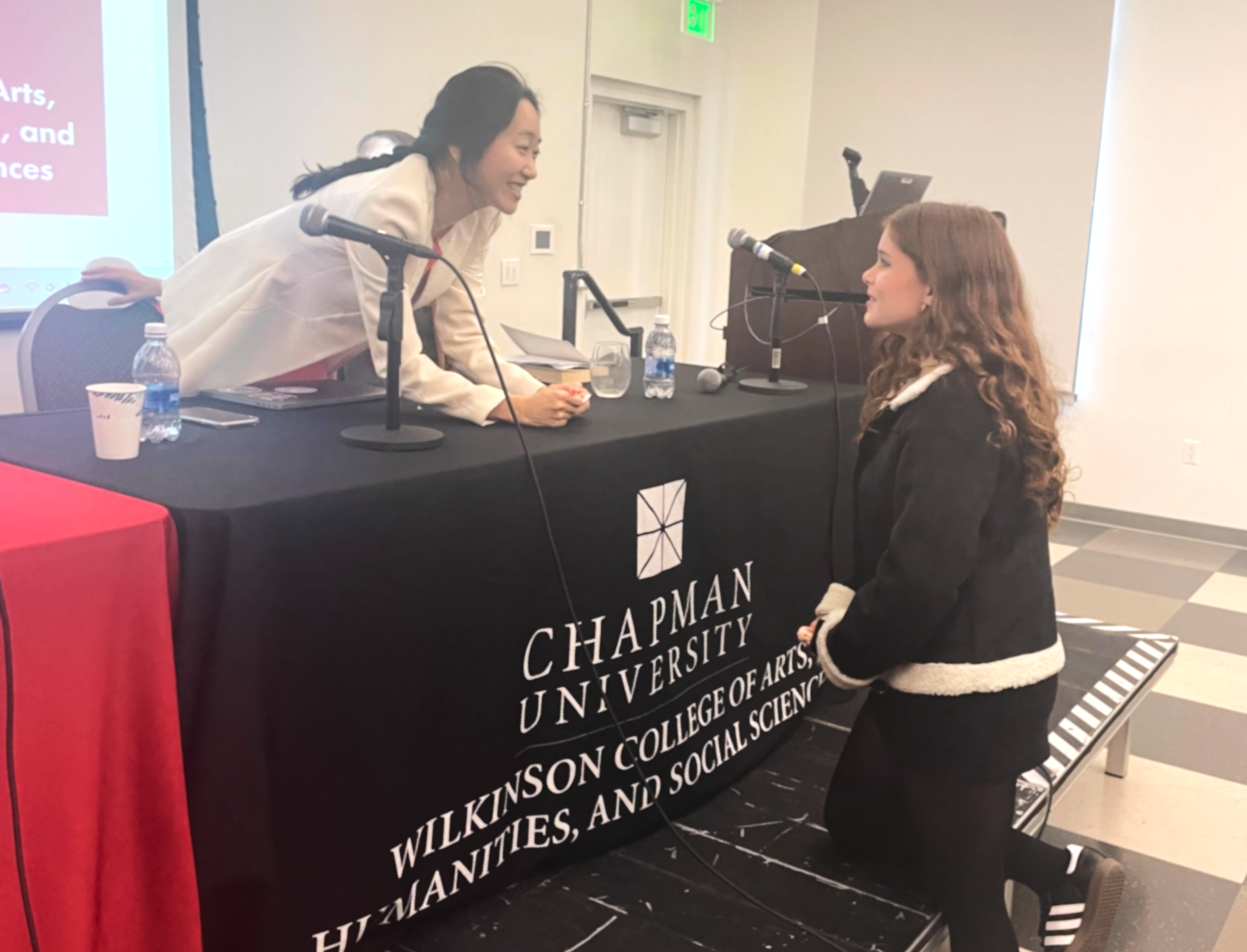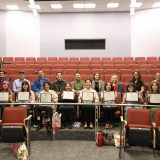
Unpacking Feminist Praxis: Historical and Cultural Approaches to Social and Political Transformation
November 20, 2024

(Left) Dr. Minju Kwon (Political Science) speaks with Sofia Sinisit (’28 Political Science) after the panel discussion.
As part of the Engaging the World: Leading the Conversation on Gender & Sexuality series, Wilkinson College of Arts, Humanities, and Social Sciences and the Department of Peace and Justice Studies recently hosted a Global Feminisms panel featuring Wilkinson College professors with expertise in Africa, Asia, Latin America, and Indigenous America.
The panel included presentations by Dr. Justin de Leon (Ethnic Studies), Dr. Minju Kwon (Political Science), and Dr. Adwoa Opong (History). The panelists demonstrated how examining traditional feminist questions in non-Western cultural and historical contexts produces different avenues for understanding power, oppression, and political agency while raising differently positioned questions about land, class, and safety.
Panel moderator Dr. Angela Lederach (Peace Studies) opened the discussion with bell hooks’ definition of feminism (from Feminist Theory: From Margin to Center) as a “movement to end sexism, sexist exploitation, and oppression,” explaining that the breadth of that definition, when grounded in specific places, reveals how feminist engagements are culturally-specific and historically-grounded in particular places.
“The panelists did an excellent job of illustrating this,” said Ledearch.
Dr. de Leon, whose research focuses on Lakota communities, asked guiding questions about sexism and oppression emphasizing how answers need to begin with attention to land, which facilitates an understanding of the links between colonialism and patriarchy.
“I introduced the Lakota term Takini by describing the Wounded Knee Massacre of 1890. Those who survived ran up a creek to an area in South Dakota that they now call Takini, which came to mean being the sole survivor when you look around and your whole family is dead around you. What, then, is the responsibility of being that survivor, for your culture and your people?” said Dr. de Leon.
Dr. Opong discussed how the National Federation of Ghanaian Women (led by educated and middle-class women) positioned single mothers as a threat to the nation-state after independence in ways that reproduced the marginalization and oppression usually only associated with colonialism. For Dr. Opong, asking questions about sexism and oppression during Ghana’s post-independence period requires close attention to socioeconomic class.
“Our panel discussed both general and particular contexts of women’s issues across various ‘non-Western’ societies under multiple hierarchies, said Dr. Kwon. “I hope that our panel facilitated conversations regarding global gender politics from a broader perspective that encompasses the agency of local women.”
Dr. Kwon opened her conversation with a brief reflection on the 4B Movement (a feminist movement rejecting marriage, childbirth, dating, and sex), which emerged in the 2010s in South Korea and has recently been viral on social media in the United States.
“It is my hope that people who attended the panel on “global feminisms” walked away with a deeper understanding of how the work to end “sexism, sexist exploitation, and oppression” is always grounded in specific contexts and requires textured understanding of culture, power, place, and history,” said Dr. Lederach.
“I like how the discussion centered on bell hooks’ definition of feminism, which each speaker illustrated through diverse perspectives and decolonial methods. I also appreciated the opportunity to ask a question about art and fashion, which garnered a response from Dr. Kwon about Korean women cutting their hair as an act of protest, and a podcast recommendation from Dr. de Leon called ‘All My Relations’, said Hannah Wells, ‘25 (Peace Studies).
(Photo header: (Left to right) Dr. Justin de Leon (Ethnic Studies), Dr. Adwoa Opong (History), Dr. Minju Kwon (Political Science), and Dr. Angela Lederach (Peace Studies).

